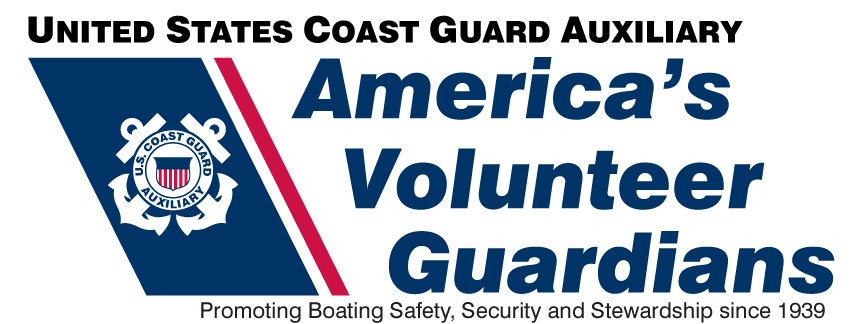The Coast Guard Auxiliary celebrates its 80th anniversary this June, and the Ketchikan chapter became its own flotilla last month (in March). At a recent Ketchikan Chamber of Commerce luncheon, flotilla commander Renee Schofield discussed the auxiliary’s expanded mission and services.
The Coast Guard Auxiliary is a volunteer organization. Schofield says when the auxiliary began in 1939, it’s original mission was to promote recreational boating and facilitate the operations of the Coast Guard. She says this remains its primary duty.
“So that’s really our mission, first and foremost. One is to keep all of you safe on the waterways, but more importantly to augment the enlisted operations as they may be called out to war time or a disaster situation, then the auxiliary fills in in other slots.”
She says a current example is the need for cooks for shore side and vessel operations. Schofield says several local auxiliary members will train to become food certified so they can fill in as volunteers. With the exception of law enforcement, she says there are over 350 jobs the auxiliary can assist with, including ham radio operators, EMTs, and disaster preparedness incident commanders.
Schofield says most are familiar with the auxiliary’s courtesy dockside exams. She says exams are free, take about 15 minutes, and no tickets are issued.
“We run through. We check your flares, we make sure all your lines are in good condition, that you don’t have a bunch of stuff crammed around, that you’ve got your proper documents (and) that you know about the one-third rule – one-third out for fuel, one-third back, one-third in reserve in case something happens. We talk about some of those safety things.”
She says the exam lets boat owners know they’re ready to go, and the sticker placed on the boat lets the enlisted side of the Coast Guard know that the vessel has passed inspection.
Schofield says the auxiliary also offers boating courses. She says recent classes focused on what to do if the captain is incapacitated and you find yourself in command of the boat, and a 12-hour boating safety course. An upcoming course is on trailering.
“How many of you can back up your trailer? That is not me. So we’ll be doing some skills and practicing with being able to back up your trailer. It should reduce a lot of incidences of screaming and yelling with husband and wife at the dock.”
In the early 1970s, the Coast Guard started the program now known as “Kids Don’t Float” to address the high rate of child and youth drownings. Schofield says life jackets provided by Rotary can be borrowed from stations at Ketchikan’s harbors. She says they are inspected and maintained by the auxiliary.
Schofield says there are about 5 million U.S. Coast Guard auxiliary volunteers nationwide. She says there are about 25 members in Ketchikan, 13 who are active, and they are looking for more volunteers. Schofield says the time commitment can be as little or as much as wanted.
“You can bake cookies and show up for the meeting on the second Tuesday of every month. We have a potluck and do some fun stuff and do a little bit of training every time. Or you can get as involved as you want and learn as much as you want at no cost to you.”
While training is free, Schofield says annual dues are $50 and applicants must undergo a background check. No boating experience is required. She says auxiliary members are considered active military and are entitled to military discounts. Schofield says as unpaid volunteers, this is a nice benefit, but she hopes that isn’t the reason someone joins. She spoke about why she and her husband, who is vice-commander, volunteer.
“My reward is truly that it is something Ed and I can do together and we’re on the water every day because we live on Pennock (Island). So that gives us that opportunity to see what’s going on out there and how the auxiliary can make a difference in helping people be safer on the water.”
Anyone interested in learning more about joining can contact Schofield or any other auxiliary member.
Safe boating week is May 18th through 24th. Schofield says during that time, the auxiliary will be in the community with information tables and signup sheets for boating classes and safety exams. And, she says, May 17th is “Wear Your Life Jacket to Work” day.






